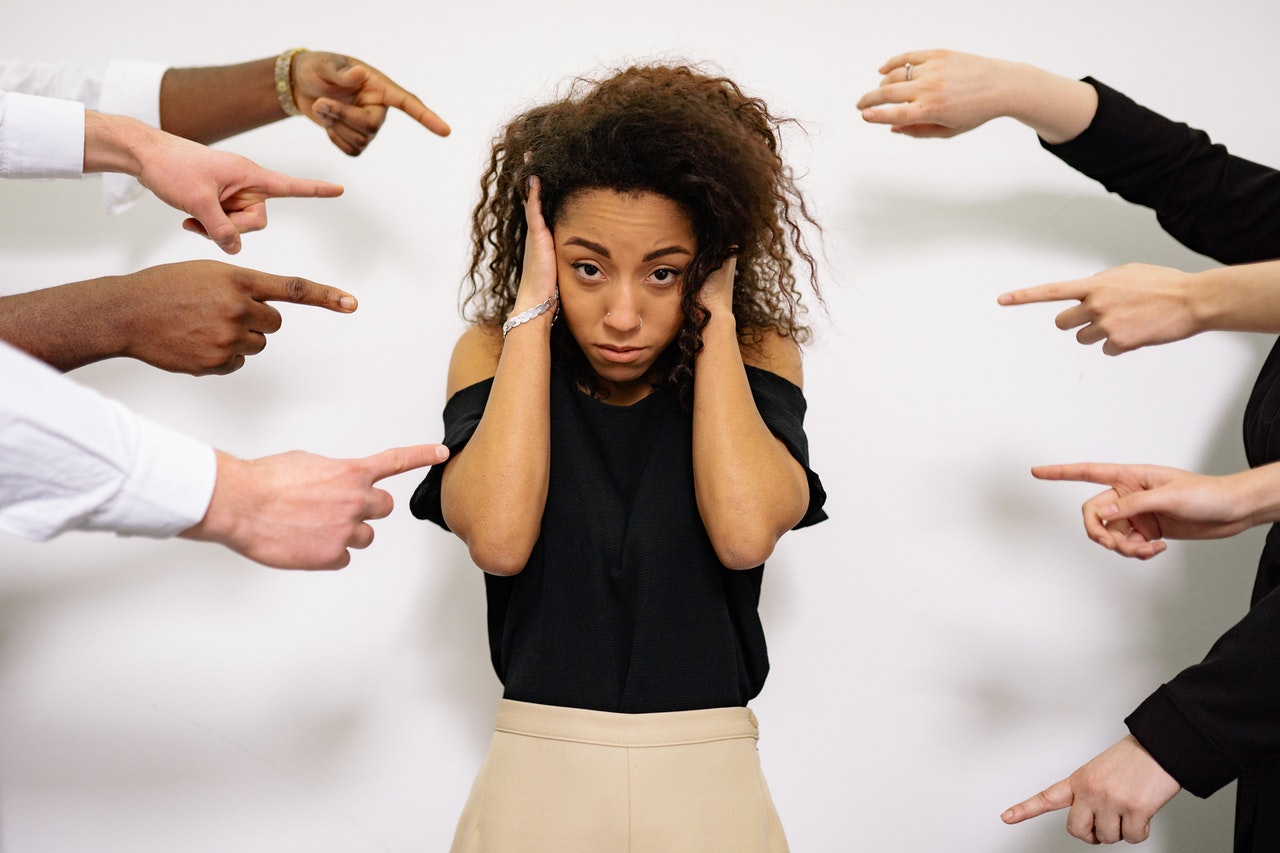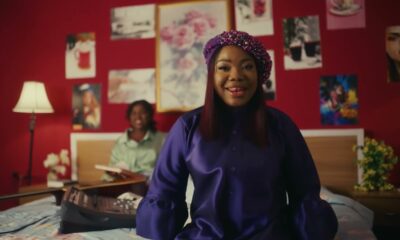Features
Ufuoma Uvomata: How Best Do You Handle Social Anxiety?
 If you have social anxiety, you’ll understand how hard it is to connect with other people. I don’t talk much not because I don’t have anything to say, but because I don’t think anyone cares. When you grow up as the ‘shy kid’, you get used to being ignored. In most cases, it starts with your first relationship with your family members.
If you have social anxiety, you’ll understand how hard it is to connect with other people. I don’t talk much not because I don’t have anything to say, but because I don’t think anyone cares. When you grow up as the ‘shy kid’, you get used to being ignored. In most cases, it starts with your first relationship with your family members.
The family is made up of people with different personalities. Usually, people relate easily with their family; they feel comfortable expressing themselves so everyone knows how to deal with one another. It’s not like that for socially anxious people. Because it’s difficult to express ourselves, we can’t really open up even to family members, and this is worse in an environment that doesn’t feel safe and nurturing.
Think about what happens when you meet two siblings. You say hello to both of them and one is quick to respond. The other says hello quietly. The more outspoken and lively one continues the conversation and you end up ignoring the ‘shy’ one. Everyone does it; it’s normal not to want to force a conversation out of someone who seems like they don’t want to talk.
It takes a lot of energy to speak so why jump into a conversation for no reason? If I don’t need to say anything, I won’t. It’s easier to just observe and pitch in where necessary.
When parents don’t know how to deal with that shy, sensitive, or weird kid, they make a lot of mistakes that can damage them. “Why can’t you be more like your brother? He’s always carefree?” “Not everything is a big deal, you take things too seriously.” “You’re too sensitive, just let it go.” “Stop overthinking.” “Why can’t you just talk?” And then these kids subconsciously build a defence mechanism against statements like these.
Families are the foundation of human relationships. It is the responsibility of every parent to ensure their children possess basic social skills. When it doesn’t come naturally to a child, they should be taught how to relate with others, and not ignored. If you notice a child doesn’t make friends easily, intervene. Find out why and help them improve. The dangers of being a socially handicapped adult are too high for it not to be taken seriously. It’s not about being popular or having a lot of friends. Social anxiety can make one lose the few friends we’ve managed to make.
A lot of people don’t know they are socially anxious. They just know they find relating with others difficult and they panic in what seems like ‘normal’ social situations. When you don’t even understand how you feel, you can’t explain it. And that’s where the problem is. We can’t communicate that we have trouble communicating.
Still, it is not too late, if you’re a socially anxious adult, you can still learn basic social skills. With practice, you’ll be able to communicate effectively, resolve conflicts, and maintain healthy relationships.
I was at an interview recently, and I had the worst anxiety attack I’ve had in a while. It was the third stage of the interview process so I was feeling confident. Once the interviewer began to speak, I felt the need to defend myself in a way that seemed off. Instead, I asked questions to make sure I wasn’t reading into things wrongly.
I’m aware of my anxiety so I always question myself in social situations, especially important ones. Interviews are a stressful situation for anyone but for me, everything is heightened. It requires almost all my energy just to stay calm. I couldn’t breathe properly and felt overwhelmed. I started to slow down my breathing – it helps to lower my heart rate and calm my nerves. I silenced the thoughts in my head and asked myself, “What’s wrong here? Calm down and listen.”
There was a pattern with the questions she was asking. The ‘issues’ she brought up were from a time before I started my career in copywriting. There were no references to the sites I worked on, or how I handled working with clients. Then I noticed she kept touching a piece of paper on her desk. It was a printout of my CV but I hadn’t applied for the role with my CV, I used my portfolio because it contains live samples of the websites I have created content for.
I started to panic again but kept telling myself, “You’re okay. You’re doing great. Just mention your portfolio.” I felt worry, and then relief when I realised she just hadn’t seen my portfolio. It was strange that I was being judged by someone who hadn’t seen my work yet, but I was excited to introduce her to it.
Because I’ve learned to calm my anxiety, I was attentive enough to notice the real problem, and didn’t act on the feeling that I was being attacked or become defensive. It was a huge moment for me because I know how the situation could have gone.
Your life can start to fall apart because of anxiety; it’ll affect your work, family, dating, and pretty much anything that involves other human beings. If you can’t communicate properly, you’ll have problems with everyone everywhere. If social skills don’t come naturally to you, you can decide to learn them. Practicing mindfulness and learning emotional intelligence will help you understand your own emotions and the emotions of others. You can then use this understanding to guide your behaviour and maintain healthy relationships. Above all, be patient with yourself.
***
Photo by Yan Krukov from Pexels





















